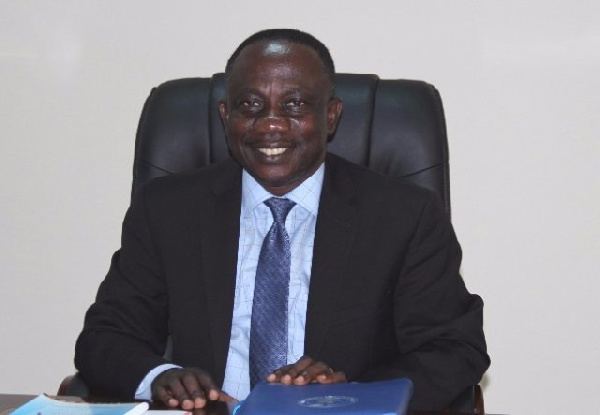The Students Loan Trust Fund (SLTF) has projected that it will cost the government at least GH¢189 million to provide loans for almost 50,000 tertiary students who are likely to apply for loans in the 2020/2021 academic year.
The estimated student population represents 10 per cent of the annual tertiary enrolment, which is expected to hit 145,000 in the 2020/2021 academic year.
The Chief Executive Officer (CEO) of the SLTF, Nana Kwaku Agyei Yeboah, said the fund was expecting a huge increase in applications for financial assistance when the first batch of free SHS students graduates in 2020.
According to its projections, if the number of students increased by 15 per cent, GH¢284 million would be required, and if it hit 20 per cent, GH¢378 million would be the budget.
Currently, 27,000 continuing students are benefitting from the loan.
As things stand now, the SLTF requires GH¢80 million annually to meet its obligations to students.
“The SLTF is in business to provide financial assistance for all Ghanaians pursuing accredited programmes in accredited tertiary institutions.
“With the successful implementation of the free SHS programme, we expect an avalanche of applications from students who would ordinarily not have qualified for tertiary education. It’s going to be a tsunami, but the government is determined that funding should not be a barrier for citizens who are willing and able to pursue tertiary education,” Nana Yeboah told student leaders who had paid a courtesy call on him at his office in Accra.
Delegation
The delegation was led by Students Representative Council (SRC) executives from the Ghana Institute of Journalism, the African University College of Communication, the Wisconsin University, NAFTI, the Accra Business School and the University of Professional Studies, Accra.
The Leader of the delegation, Mr Justice Aboagye Sarpong, explained that the visit was a fact-finding one to understand the challenges confronting the managers of the fund which had led to a delay in loan disbursement to students for the second semester of the 2018/19 academic year.
Restructuring
Nana Yeboah told the students that the SLTF was in the middle of a restructuring process due to increased demand by beneficiaries.
He said the fund would emerge stronger from the processes, with increased and sustainable funding, as well as the introduction of different products to serve the varying needs of students.
“We are at a painful stage, but these are necessary pains for us to grow,” he said.
The CEO thanked the SRC leadership for their collaboration over the years and pledged to pay all outstanding loans in the shortest possible time.
As part of efforts to increase the funding, the Senior Communications Manager of the SLTF, Mr George Laing, said it had a technical resource mobilisation unit which was considering partnering some companies that operated scholarship schemes.
In that regard, he said, the fund could implement those companies’ corporate social responsibility programmes connected with tertiary education.
He cited a Databank Foundation and SLTF collaboration which, in February this year, announced that 20 SHS students would benefit from a Databank Scholars Programme for the 2019/2020 academic year.
The programme, which is now open to applications from the public, will benefit students from deprived communities in the five regions of the north who gain admission to accredited tertiary institutions to pursue accredited programmes but are unable to raise the initial admission fees required to secure their places.
Challenges
The SLTF has, in recent times, faced some challenges, as a 50 per cent increase in the loan amount resulted in a surge in applications, putting a strain on the fund.
As of November last year, more than 32,000 continuing students who applied for loans for the 2018/2019 academic year were yet to receive their money, three months into the academic year.
The students were paid in December when the first semester had almost ended.
The SLTF increased the loan amount to a minimum of GH¢2,000 and a maximum GH¢3,000, beginning from the 2018/2019 academic year.
In 2016, the minimum amount was increased from GH¢650 to GH¢1,000 and the maximum from GH¢1,600 to GH¢2,000.
The loan is meant to defray personal expenses, including fees, cost of boarding, lodging, books and equipment and for other purposes that may be necessary.
The amount was adjusted to meet the increase in fees by tertiary institutions.
Recovery
Given that students don’t repay the loans immediately they complete school, recovery has become a major headache for the fund.
Students are given at least a year’s grace period after leaving school, but sometimes some beneficiaries take more than a year to repay their loans.
As of September 2017, the trust had recovered at least 60 per cent of the loans it disbursed to students.
In June 2016, it published the names of 31,223 people who had collected loans to the tune of GH¢78 million and had defaulted in payment.
Some of the people whose names were published on the SLTF’s website are said to have been in default for close to 10 years.
Currently, the trust is threatening to publish those names in the national dailies if the defaulters fail or refuse to make payments.
Source: Graphic.com.gh

